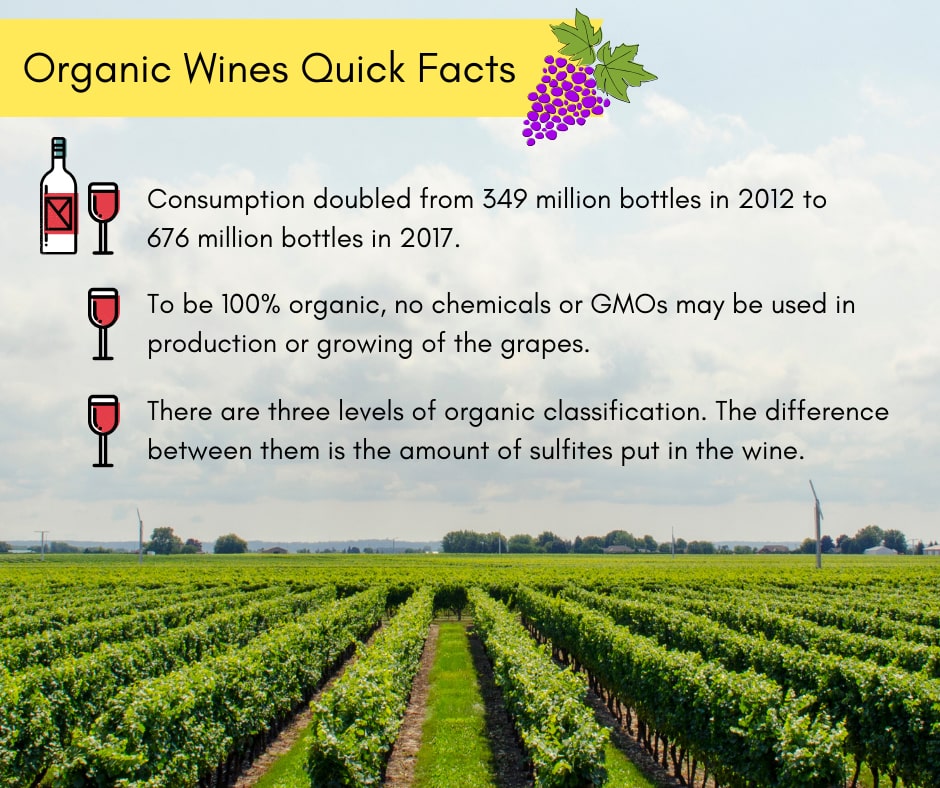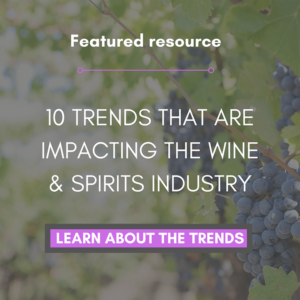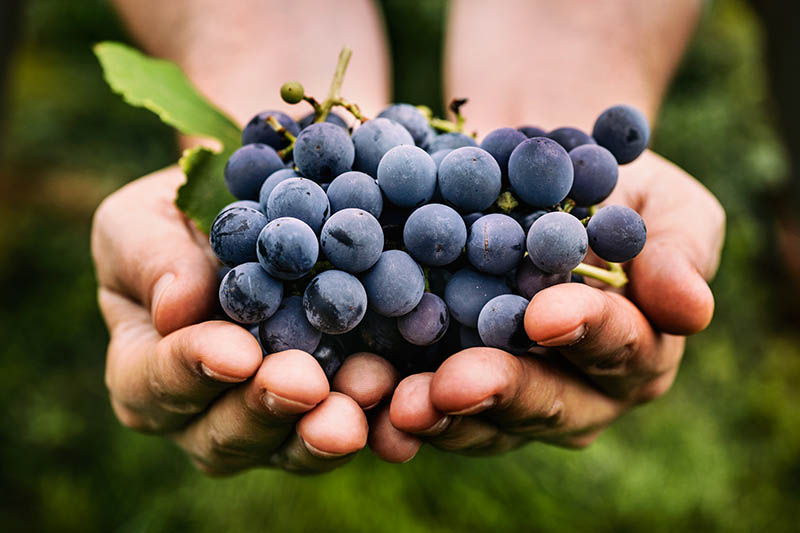For some wineries, farming organically has always been a way of life, but others are adding organic wine to their portfolio to keep up with consumer demand.
In fact, more than 1 billion bottles of organic wine are set to be consumed around the world in 2019. While it still only accounts for 3.6% of all consumption, that number is expected to continue to grow by 2022.
The organic wine segment has been growing over the past few years, as consumers are focused more on what they eat and drink.
What does it mean for a wine to be organic?
Organic wine is produced from organically grown grapes. To be truly 100% organic, no chemicals or GMOs may be used in the production of the wine or the growing of the grapes.
In the United States, that means sulfites cannot be added to the wines, the wines must meet the sulfite labeling requirements of the Alcohol and Tobacco Tax and Trade Bureau, and the wines must meet the same requirements of USDA organic certification for food.
The USDA has three levels of organic classification for wine: 100% organic, organic, and made with organic grapes. The main difference between each of these three categories is the amount of sulfites put in the wine.
Organic and 100% organic wine must have no added sulfites and can only contain up to 10 parts per million (ppm) of sulfites. Wines that are classified as “made with organic grapes” can have sulfites up to 100 ppm, and conventional processed wine can have sulfites up to 350 ppm.
However, the lack of sulfites in wine can reduce the bottle’s shelf life, causing it to age too quickly, and even alter the flavor.

If a winery wants to produce organic wines, it often needs to drastically change its way of making wine, from the way it farms to the bottling line. To be 100% organic, every ingredient needs to meet the qualification of the USDA, even the yeast.
Keep in mind that while a wine can be made with organic grapes, that doesn’t mean it is completely organic. This is because sulfites may be added during bottling, even though the grapes were grown organically.
While the U.S. organic market is growing, Europe leads the way in producing organic wines, with Spain, Italy, and France having the most land devoted to growing organic grapes. The three counties represent 73% of all organic vineyards in the world.
In Europe, the regulations for organic wines are slightly different. Some sulfites are allowed to be added to the wine, but there are no chemicals allowed during the growing of the grapes.
Why do wineries like organic wines?
 Many wineries have always farmed organic because they feel it increases the taste of their wine when the land is free of chemicals.
Many wineries have always farmed organic because they feel it increases the taste of their wine when the land is free of chemicals.
Organic is also a growing trend, with consumption nearly doubling from 349 million bottles in 2012 to 676 million bottles in 2017. Customers are familiar with the term and often seek it out as a better product to ingest.
Are sulfites bad for you?
Often customers will see the label have a statement that says “contains sulfites” on the bottle and think since there is a warning, it must be bad.
But in reality, most people already have sulfites in their bodies. Amino acids in the human body naturally produce sulfites as part of their efforts to break down alcohol toxins.
Others blame sulfites for their hangovers. But sulfites only cause an allergic reaction in a small number of people. It’s actually the histamines and tannins — and yes, the alcohol — that cause that pounding headache.
What can I do to market to consumers who want organic?
First, examine the data. How great is the demand for organic wines in your target market? Would an investment in organic wine make financial sense for your organization?
Next, you may already be creating an organic wine. Talk with your team and understand what chemicals, if any, are going into your wine making process.
While you may feel you need some added sulfites to maintain the flavor of your wine, you can try to farm the grapes organically in your next season and reach for products that have fewer chemicals in them.
Finally, if you do decide to farm organically, you can adjust your label and marketing materials to include “made with organic grapes” to ensure customers know your product fits this niche.
- 87% of Utilities Have Experienced at Least One Data Breach in Last Three Years - February 5, 2024
- Can Drones Lower Your Next Utility Bill? - January 10, 2024
- Onshore Wind Farms Are The Next Big Thing In Renewable Energy - December 6, 2023




